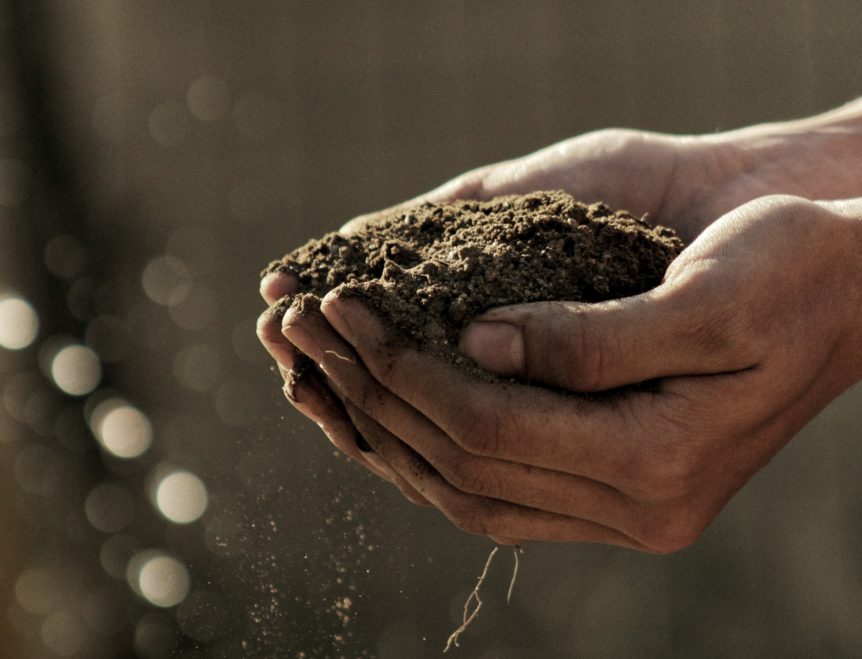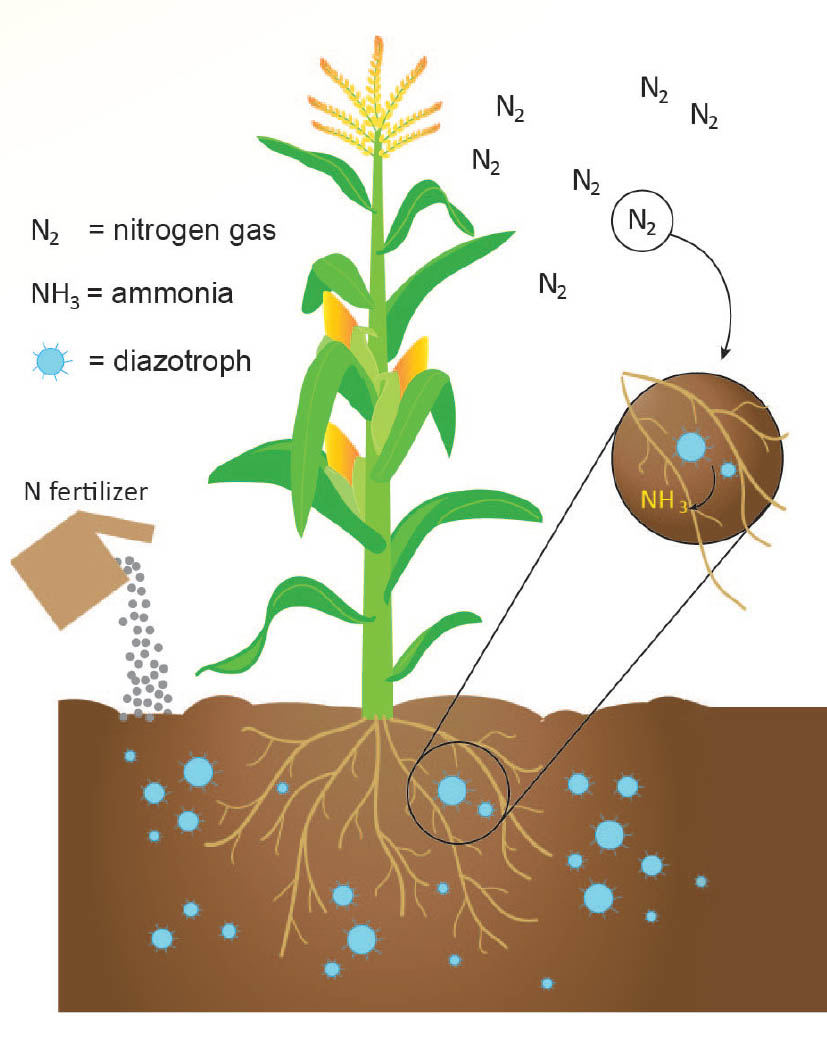Homeowners, gardeners, community gardeners, golf course superintendents, and turf consultants are encouraged to submit soil samples now to the North Carolina Department of Agriculture and Consumer Services Agronomic Services to ensure faster turnaround time on results and avoid peak-season testing fees. “Soil test results completed this year are good for the next two to three years. So, if you have …
Replacing Chemical Fertilizer With Nitrogen From Soil Bacteria
By Kristen Van Gelder The invention and use of chemical nitrogen fertilizer starting in the early 20th century have led to a phenomenal gain in agricultural output. For example, typical maize yields in the U.S. have risen from 2 tonnes per hectare in the early 1940s to about 11 tonnes per hectare today — a 450% increase that is in …
Soil Sampling Timing Critical in Nematode Management
By Clint Thompson Soil sampling can be an integral part of a farmer’s planning for nematode management for the upcoming season. But growers should know when is the proper time to conduct soil samples. Johan Desaeger, assistant professor of entomology and nematology at the University of Florida Institute of Food and Agricultural Sciences (UF/IFAS) Gulf Coast Research and Education Center, …
Blueberry Cultivation in Soilless Substrates
By Gerardo H. Nunez Blueberry production in containers filled with soilless substrates is rapidly expanding throughout the world and in the Southeast. Blueberry bushes are notorious for their strict soil requirements. They prefer well-drained, acidic soils with high organic matter. These soil characteristics are not common in many parts of the world. Thus, blueberries have traditionally been grown with soil …
Soil Health: UF Scientists Receive Grant to Study Fumigation
By Brad Buck, (352) 875-2641, bradbuck@ufl.edu Fumigants are an essential tool growers implement before planting to manage soil health. They reduce harmful diseases such as Fusarium wilt and pests like root-knot nematodes and weeds that compete for water and nutrients. Their effect on soil diseases, pests and weeds help sustain production. But how does it happen, especially considering there’s so …
Alabama Extension to Host Online Vegetable Production Meetings
Alabama Extension has scheduled vegetable production meetings via zoom, starting on Feb. 23 through March 30. Every Wednesday, from noon to 1:30 p.m., a different vegetable topic will be discussed with specialists at Alabama Extension. Andre da Silva, assistant professor in horticulture, and Ayanava Majumdar, Extension professor in entomology and plant pathology, will discuss tomato varieties and tomato insect management …
Sensors a Focal Point of Upcoming SE Regional Fruit, Vegetable Conference
By Clint Thompson Soil moisture sensors are an integral part of many farmers’ irrigation scheduling strategies. Wes Porter, University of Georgia Cooperative Extension precision agriculture and irrigation specialist, wants more growers to be aware of their benefits. That’s why he’s invited a South Georgia farmer Brandon DeWitt to speak at the upcoming Southeast Regional Fruit and Vegetable Conference in Savannah, …
Technological Advancements Helpful in Preserving Florida’s Water Supply
By Clint Thompson Water is one of the most valuable resources Florida vegetable and specialty crop producers utilize every season. But that doesn’t mean there’s an endless supply. “I think it is easy for us to forget it is a finite resource and there are limits. It’s easy for us to forget because we just got five inches of rain …
Sulfur Key Tool in Reducing Soil pH
By Clint Thompson Sulfur is a tool that South Florida growers can implement to decrease their soil pH in preparation for the upcoming fall season. Phillip Williams, an assistant professor at the UF/IFAS Southwest Florida Research and Education Center, discusses the importance of bringing the soil pH down to its optimal level of 6.5. “The problem in Southwest Florida, our …
UF/IFAS Specialist: Every Time You Have Nutrient Leaching, You’re Losing Money
By Clint Thompson Sandy soils dominate the soil landscape for vegetable production throughout Florida, according to University of Florida (UF)/IFAS. They provide growers distinct advantages, such as an ease of tillage and production of the earliest vegetable crops. However, a key disadvantage is the ability of nutrients to be leached, specifically with nitrogen, potassium and phosphorous. Leaching refers to nutrients …
- Page 1 of 2
- 1
- 2











